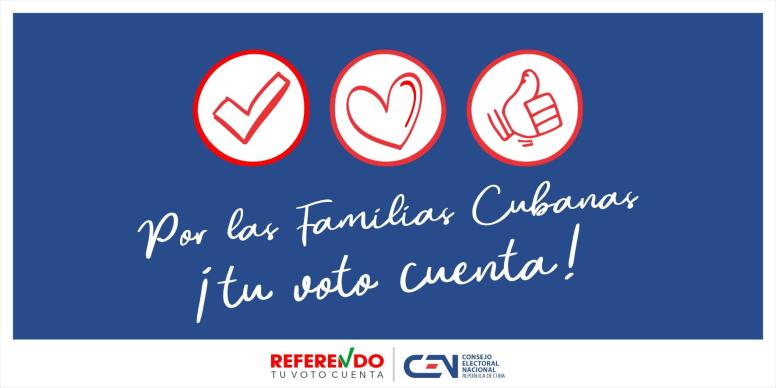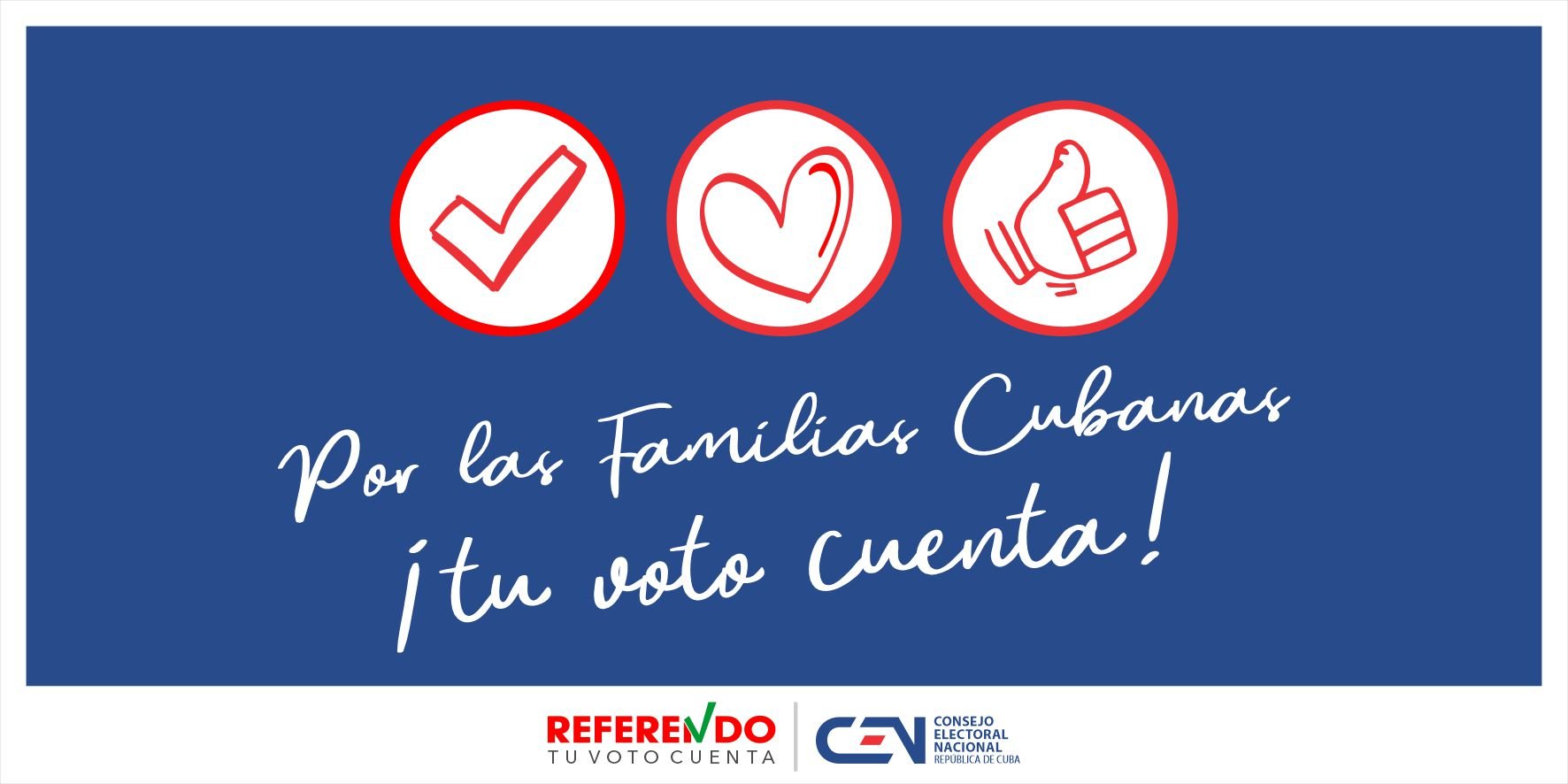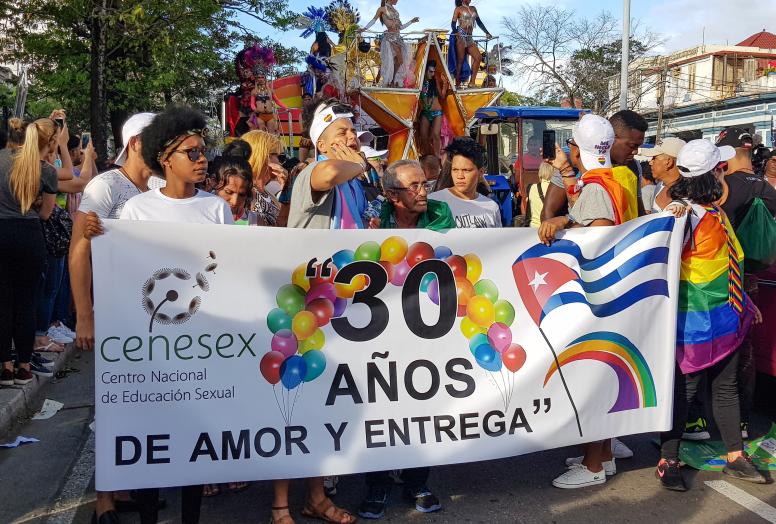
- Blog
- 9 February 2023
'Love is now the law.' Will gender norms change by legalising same-sex marriage in Cuba?
- Author: Evie Browne
- Published by: ALIGN
“El amor ya es la ley”
Love is now the law - Miguel Díaz-Canel, President of Cuba
In September 2022, Cuba’s referendum on its Family Code shifted the way in which the country defines family and protects sexuality rights. The referendum results legalised same-sex marriage, as well as assisted reproductive technology and child adoption for same-sex couples. Although LGBTQI+ rights were not the only issues in the new Family Code, they were by far the most controversial, following several previous attempts to legalise same-sex marriage through other policies and laws.
While a referendum cannot change a norm by itself, it might be a progressive policy step that plays an important role in a much deeper and longer process. A referendum is usually successful when a large share of the population supports the change already, serving as a validation process which also indicates fertile ground for norm change. But can a referendum ensure that changes to norms on LGBTQI+ rights take hold across the whole of society?
| Choice: Do you agree with the family code? | Votes | % |
|---|---|---|
| Yes | 3,950,288 | 66.85% |
| No | 1,959,097 | 33.15% |
Results of the Cuban referendum. Source: Consejo Electoral Nacional.
Civil society strengthens political support for LGBTQI+ rights
Support for same-sex marriage in Cuba has been led by the semi-autonomous, semi-governmental institution CENESEX (Cuban National Center for Sex Education), headed by Mariela Castro Espín. CENESEX has campaigned for same-sex marriage and LGBTQI+ rights since at least 2007, bringing a number of marriage equality bills into debate in the National Assembly.
The previous effort was during the 2019 Constitutional amendments, which were put to general public debate, following Cuba’s model of direct democracy. However, this, and other similar efforts, had been watered down by the National Assembly with the explanation that ‘the Cuban people are not ready’ for such a change.
Today, however, Mariela and CENESEX have the support of Cuba’s new-ish President, Miguel Díaz-Canel, who openly supports LGBTQI+ rights, and this is often seen as a promising shift in Cuba’s national narrative. There has also been plenty of civil society activism in favour of LGBTQI+ rights, and same-sex marriage specifically.
This activism has had to contend with a strong campaign against same-sex marriage, driven largely by the evangelical and Catholic churches. There is no doubt that civil society and political support for LGBTQI+ rights contributed to the positive result of the referendum. At the same time, however, there were strong critiques of the government’s pressure on Cubans to vote yes.


Underlying norms on masculinity
Despite the positive result, underlying norms on masculinities still prevail. Disapproval of same-sex marriage is often rooted in a fear that men and women will uproot traditional gender roles and break gender norms. A study in the United States and Canada showed that religious opposition to same-sex marriage is linked more closely to prejudice against any group that violates social conventions, and conservative preferences to maintain the status quo, than to any opposition to legal and social equality itself.
Across much of the Caribbean, Central and South America, machismo or sexist expressions of masculinity, rely on a binary understanding of gender that emphasise men must be ‘masculine’ and women must be ‘feminine’. Same-sex couples often experience discrimination and violence because they are perceived to disrupt this rigid script and ‘natural’ pairing of opposites. In my own research into this norm, one respondent said:
‘People don’t understand how it is possible for someone not to like women, if they were born as a man.’
This attitude shows how male and female gender identities are often underpinned by ideas of heterosexuality or heteronormativity. The notion that to be a ‘proper’ man or woman, one must be attracted to the opposite sex. Therefore, LGBTQI+ people are often perceived as gender transgressors who challenge the gender binary and disrupt traditional norms.
Same-sex couples face different stigmas around parenting
There seems to be a real difference in how non-LGBTQI+ people perceive same-sex parenting between female couples and male couples, which plays into heteronormativity and gender norms. My own research revealed that marriage and child-rearing is still seen as more highly respectable for women, because women are often presumed to be ‘natural caregivers’ who inherently want children. This means that there is broader support for lesbian women’s rights to have children than there is for gay men.
Marriage and parenting between men is in fact far more taboo. A study of 23 countries found that gay men are more ‘disliked’ than lesbian women, a view largely held by other men. In laws against homosexuality across the world, sex between men can be severely punished, while sex between women may not feature at all, not only because lesbian lives are often ignored and rendered invisible, but also because patriarchal systems consider sex between men as a greater threat to the nation.
Gay fathers are therefore judged more harshly than lesbian mothers, being perceived as violating hegemonic masculinity and traditional gender roles. Stigma on the basis of being too feminine is also at play, which links to a wider patriarchal devaluation of women/femininity, and the associated labour of caregiving and social reproduction.


Laws and norms: a hopeful marriage?
A new law itself cannot change such anti-LGBTQI+ fears or gender norms alone. It can only provide the legal or policy frameworks to protect individuals that might break gendered binaries and ensure they have a place in society so that they can live authentic lives. There is still much work to be done to change norms of patriarchal masculinity and to normalise same-sex male desires for marriage and children.
Now, many Cubans have legalised their same-sex partnerships into marriage, which presents new opportunities for them to live their lives as legally-recognised couples – and even become role models or social influencers in Cuban society. This would be a signal that the referendum has been a tipping point for deeper norm change.


About the author - Evie Browne
Dr Evie Browne has a PhD in International Development from the University of Sussex with a focus on LGBTQI+ issues and gender normativity among lesbian and bisexual women in Cuba. Her research interests centre on intersectional feminism, gender norms and normativity, sexualities, rights, and social justice. Evie works on a number of projects at ODI including ALIGN.
Prior to joining ODI, Evie was a Research Fellow at GSDRC, providing a bridge between academic experts and donor agencies and government policy departments, delivering rapid response research services for DFID, AusAID and the EC. Evie has worked as a research consultant in international development since 2011, supporting policy-oriented research with ODI, IDS, the World Bank and International Alert, among others. As such, Evie has considerable experience of working with donors and delivering useful policy research. She speaks English and has a working proficiency in Spanish.